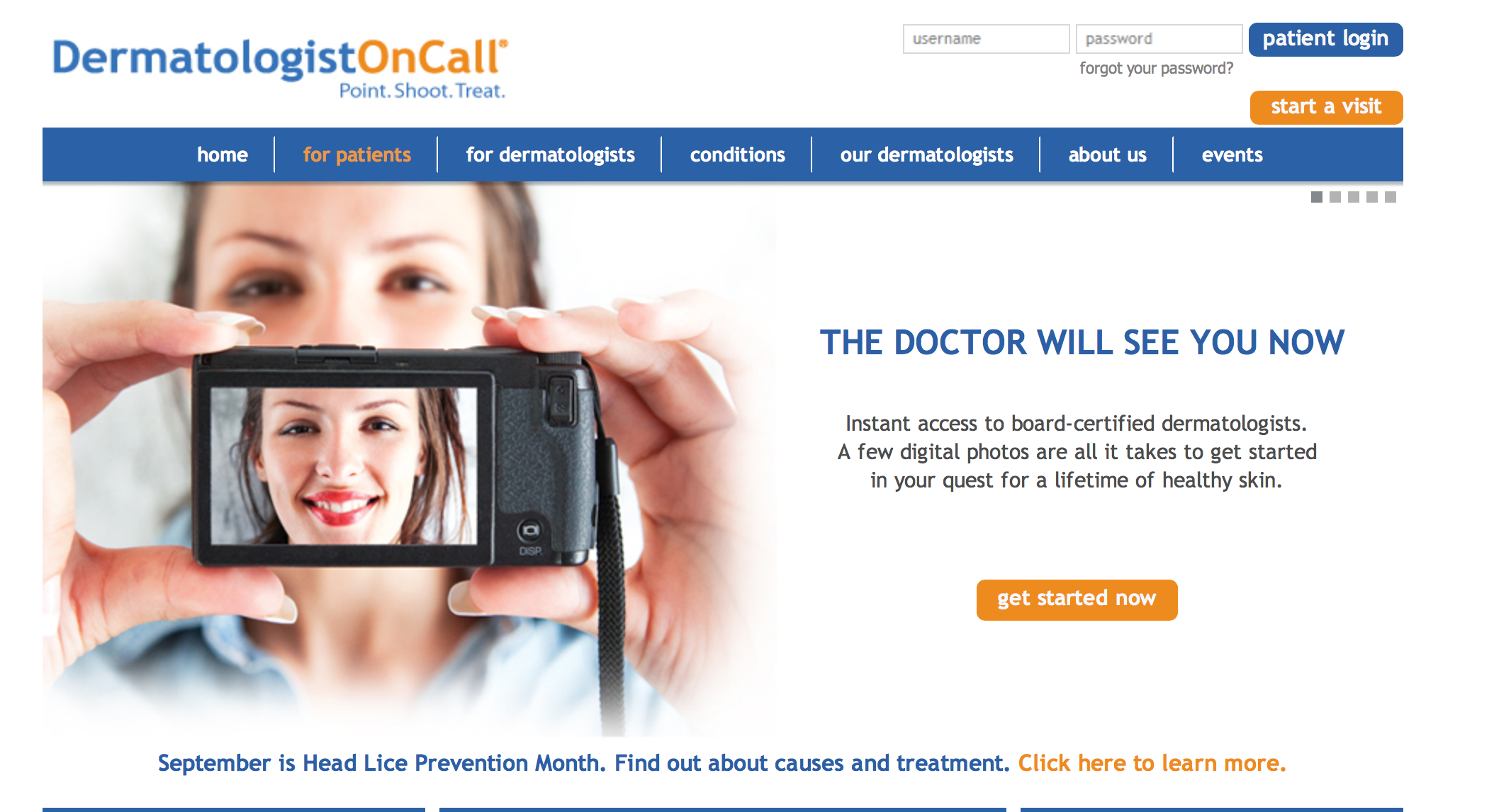“There’s an app for the that.” In this case, it’s apps for health and wellness. New smartphone healthcare apps that cover an array of healthcare concerns are infiltrating the market. This bring an aspect of medical care to the comforts of home and the office. However, physicians and dermatologists worry that smartphone apps that diagnose skin conditions aren’t reliable. It brings the concept of “the doctor will see you now” to the realm of virtually anywhere, which can also be unsafe. Dermatologists warn that these healthcare apps are not a substitute for dermatologist appointments in person.
SMARTPHONE APPS FOR VIRTUAL DIAGNOSES
Specifics for each smartphone health and wellness app range from those that monitor your blood pressure to caloric intake to weight but an increasing number are also doing virtual diagnoses. Many dermatology apps are also often not created by medical professionals.
The upswing of the smartphone apps that diagnose skin conditions, such as rashes and infections, prompted Journal of the American Medical Association (JAMA) Dermatology to conduct a study on the trend recently. JAMA Dermatology and JAMA Network are associated with the American Medical Association. One of JAMA Dermatology’s biggest concerns are those that “diagnose” possible malignant melanomas and advise monitoring rather than an immediate dermatologist appointment.
Smartphone apps that diagnose skin conditions now number 250-plus on the market, such as DermatologistOnCall.com, SkinScan.com and iSore.com. Of those 229 apps, more than half are targeted at patients and consumers, according to the JAMA Dermatology study. Additionally, only a few were clearly designed by medical personnel.
While doctors have practiced “tele-dermatology” for many years — speaking with a patient on the phone for a diagnosis — smartphones trade a phone call for uploaded photos and a written description of symptoms.

The upswing of the smartphone apps that diagnose skin conditions, such as rashes and infections, prompted Journal of the American Medical Association (JAMA) Dermatology to conduct a study on the trend recently.
SMARTPHONE APPS THAT DIAGNOSE SKIN CONDITIONS
Smartphone apps that diagnose skin conditions and skin concerns run the gamut. Some apps describe rosacea, eczema, psoriasis and acne with pictures and text. Others use a user’s skin type and the current weather conditions to give recommendations on a sunscreen. The more worrisome are those that make it possible for patients to get a diagnosis, treatment plan, disease-specific information and even prescriptions. Several smartphone apps that diagnose skin conditions use patient-submitted photos for a diagnosis.
The study reveals:
- Previous research shows tests’ sensitivity ranges from nearly 7 to 98 percent.
- Another study sent photo of malignant melanomas through a skin condition diagnosis app and diagnosed 88 percent of them as medium-risk. It wrongly advised users to simply monitor the lesions.
“The diagnostic inaccuracies of these apps may harm patients who substitute these relatively inexpensive tools for in-person medical care, by potentially delaying treatment for melanoma,” said the JAMA study.
At this time, The U.S. Food and Drug Administration (FDA) does not regulate most mobile health apps. Exceptions to this stance include those that serve medical purposes such as sending real-time electrocardiographs to a doctor, calculating radiation dosage for a cancer patient and measuring blood pressure.
Despite the FDA’s hands-off approach, the JAMA study warns that those who download these smartphone apps that diagnose skin conditions should not follow their advice over that of a doctor. Overall, the safety and accuracy of such apps are limited.
Researchers at the Department of Veterans Affairs Medical Center in Denver and the Colorado School of Public Health, University of Washington, University of Pittsburgh University of Arizona and University of Colorado conducted the study.
